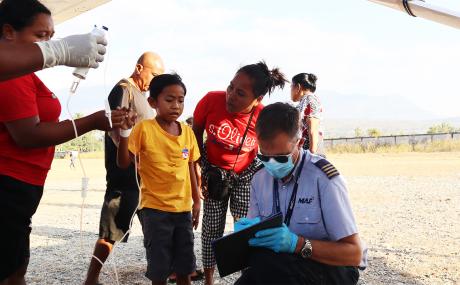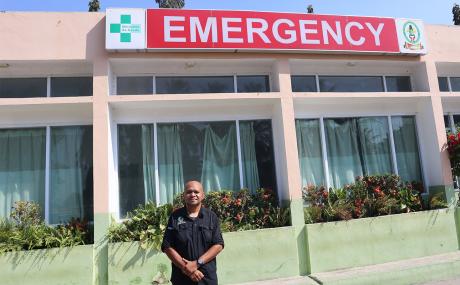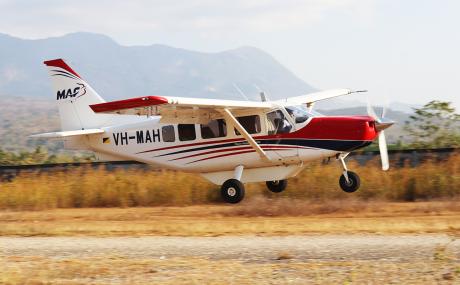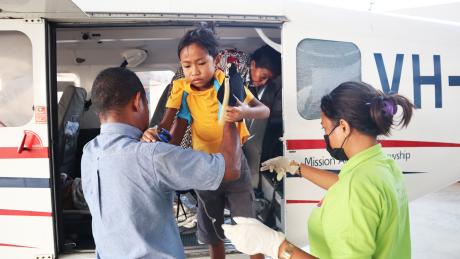
A MAF flight provided the crucial link between an isolated community and Timor-Leste’s only hospital for a child suffering from rheumatic heart disease.
William Dae Pani loves playing football and spending time with his friends, but the seven-year-old was suffering in pain and discomfort when the MAF plane arrived to bring him to hospital.
The seven-year-old, from Maliana in the western part of Timor-Leste, boarded one of around 200 medevacs MAF has flown so far in 2023. It is a short 25-minute flight to the capital Dili, but the only alternative would be an uncomfortable three-hour journey by road. William had been diagnosed with rheumatic heart disease and urgently needed to be flown to the national hospital in the capital.
His father Yakobus Dae Pani said the youngster had been assessed at a local clinic in Maliana, where health officials had made the decision to call out the MAF plane.
“He felt this pain for two weeks, and we went to the hospital for a check-up. Then we brought him to the referral hospital to do a check-up and found some infection in his heart,” he said.
The father was feeling grateful for the option to fly with MAF, which is part of an arrangement to provide medevacs for Timor-Leste’s national ambulance service.
“When I heard that my son would be transferred by MAF’s plane to Dili, I was happy because it’s a way that can save his life,” he said.
... I was happy because it’s a way that can save his life
“Travelling by a plane is the easiest and safest way to help him to get to Dili rather than making a long journey by road.
“I thanked MAF for helping us transport my son from Maliana to Dili to get further medical treatment, and they saved my son’s life.”
The next challenge is to support William while he waits to get the right treatment at the Hospital National Guido Valadares (HNGV) so he can hope to return to a normal life in his community.
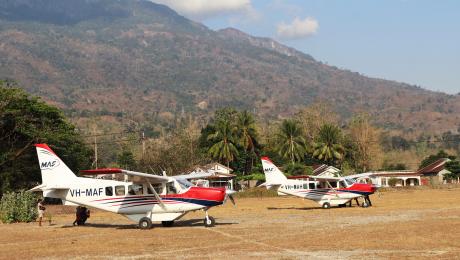
The flight that collected William was one of two MAF planes that took off to Maliana on the same day. The other patient was a woman suffering from a kidney infection.
Just two days later, a MAF plane flew to Viqueque, on the south-east coast of Timor-Leste, to evacuate a woman who suffered pregnancy complications.
Doctor Gustodio de Jesus Alves, an emergency specialist at HNGV, said the challenge Timor-Leste faced was to keep developing its young health system so patients could receive earlier care in their communities.
“We are working very hard at the moment to try and to make a bridge between emergency hospital care and pre-hospital care,” he said. “We need to focus on training more people so that, in five- or ten-years’ time, we'll have more people to look after or continue what we have started.”
Author: Lobitos de Jesus Alves
